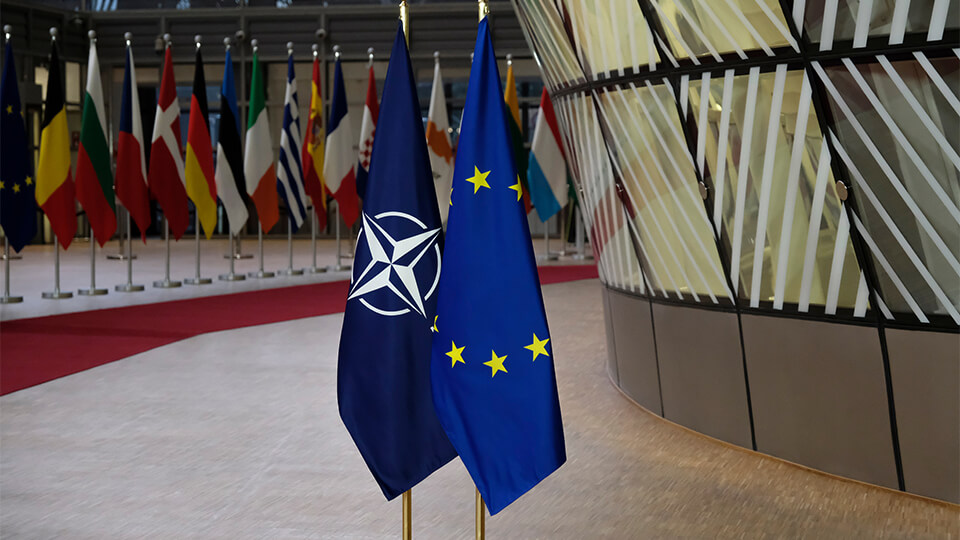Europe’s defense sector is undergoing rapid transformation, driven by geopolitical instability, increasing budgets, and the ongoing war in Ukraine.
On the surface, rising defense funding signals opportunity and growth. However, underlying structural issues – talent scarcity, fragmented industrial landscapes, entrenched organizational cultures, and shifting procurement expectations – highlight the depth of transformation required. In response, a new breed of leadership is emerging to meet the sector's evolving needs.
Fragmented Foundations and Demographic Shifts
Germany reflects many of Europe's broader industry challenges, characterized by a highly fragmented landscape with numerous privately held firms. Despite recent budget increases, these companies have struggled to expand their leadership talent pools due to established management structures.
The demographic challenge further compounds this problem, as an aging workforce intensifies the urgent need for executives equipped with forward-looking skills, digital proficiency, and robust succession planning capabilities.
Ukraine’s recent experience, marked by rapid mobilization and agile management adjustments, provides instructive lessons on swift succession planning and structural agility for Europe's more traditionally cautious industries.
Competing with Tech for Talent
Defense firms now compete directly with AI and tech companies for top talent. Attracting digitally skilled, mission-driven professionals - particularly in systems engineering and software - is critical.
Successfully competing with the tech sector requires Defense firms to reinvent their employer branding and organizational appeal. Ukrainian companies offer compelling examples, having successfully attracted tech talent from civilian industries during wartime, demonstrating practical pathways that European Defense firms can emulate.
In addition to attracting talent, Ukrainian defense tech companies are actively developing it. Many have launched training platforms focused on critical technical skills such as UAV assembly and battlefield systems integration, expanding the domestic talent pool under extreme conditions.
Moreover, success in modern defense requires leaders who can unite hardware and software capabilities.
Executives must also maintain a sharp eye on emerging trends, with continuous market analysis now vital for identifying and adopting breakthrough innovations.
Bridging Cultural and Operational Gaps
Organizational and cultural processes also pose hurdles for European defense companies as they struggle to meet contemporary operational demands. The need for lean manufacturing, agile supply chain integration, and systems-level thinking has never been greater, especially in the context of urgent wartime production triggered by the Ukrainian conflict.
Europe's historically slower peacetime procurement processes now starkly contrast with the demands of today's geopolitical realities. This shift necessitates executives capable of transitioning organizations from project-oriented approaches to comprehensive program-level execution.
Ukraine’s rapid cultural pivot under wartime conditions illustrates the power of decisive, adaptable leadership in delivering timely outcomes.
Rethinking the Executive Profile
The profile of defense industry leaders is undergoing a fundamental transformation. Executives now need practical experience in startup and scale-up environments, along with an entrepreneurial mindset, operational resilience, and proficiency in cross-functional systems integration.
The traditional executive profile – defined by deep product expertise and long-term tenure within the industry – is no longer sufficient.
Leaders must now be prepared to operate in volatile, high-pressure environments, making swift decisions with limited information.
In frontline contexts, a military background may also be helpful to effectively align strategic aims with on-the-ground realities.
Increasingly, there is growing interest from adjacent industries, notably automotive, to transition into defense. Ukrainian organizations have rapidly demonstrated the viability and benefits of integrating talent from diverse sectors, offering a powerful example for broader European application.
Private Equity and Strategic Convergence
A significant trend reshaping the European defense industry is the increasing convergence of traditional defense manufacturers, private equity (PE) investors, and dual-use technology startups.
PE-driven acquisitions are transforming organizational cultures, imposing higher standards of commercial discipline, rigorous KPI-driven management, and strategic agility. Emerging executive roles now demand transactional experience, strategic commercial competence, and proven results-oriented execution.
Ukrainian defense startups, benefiting from private capital infusion, exemplify how PE involvement can swiftly enhance operational effectiveness and commercial practices.
From Products to Ecosystems
The industry is shifting from standalone products to integrated systems. Defense firms must now operate within broader ecosystems, often led by major integrators like Airbus.
Executives must now cultivate an ecosystem-focused mindset, emphasizing strategic partnerships, platform-building, and interoperability.
The Ukrainian experience during wartime provides clear evidence of the effectiveness of integrated ecosystems, highlighting essential lessons in cooperation, rapid innovation, and operational agility.
The Future of Defense Leadership
Europe's defense industry is undergoing significant structural, cultural, and commercial transformations, profoundly reshaping the nature of leadership hiring.
The new generation of executives must embody commercial acumen, operational agility, entrepreneurial thinking, and experience drawn from diverse sectors.
Embracing fluid talent acquisition strategies, welcoming unconventional leadership backgrounds, and swiftly integrating varied skillsets will distinguish the most successful companies in Europe’s rapidly evolving defense landscape.
________________________________________________________
Get in touch. Follow the links below to discover more, or contact our global defense sector leadership experts from your local Odgers office here.

Never miss an issue.
Subscribe to our global magazine to hear our latest insights, opinions, and featured articles.
Follow us
Join us on our social media channels and see how we’re addressing today’s biggest issues.



